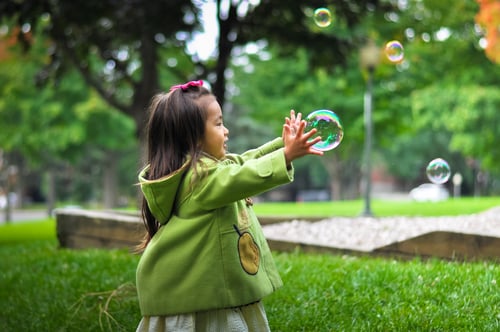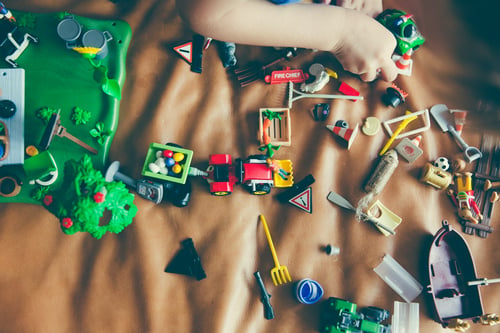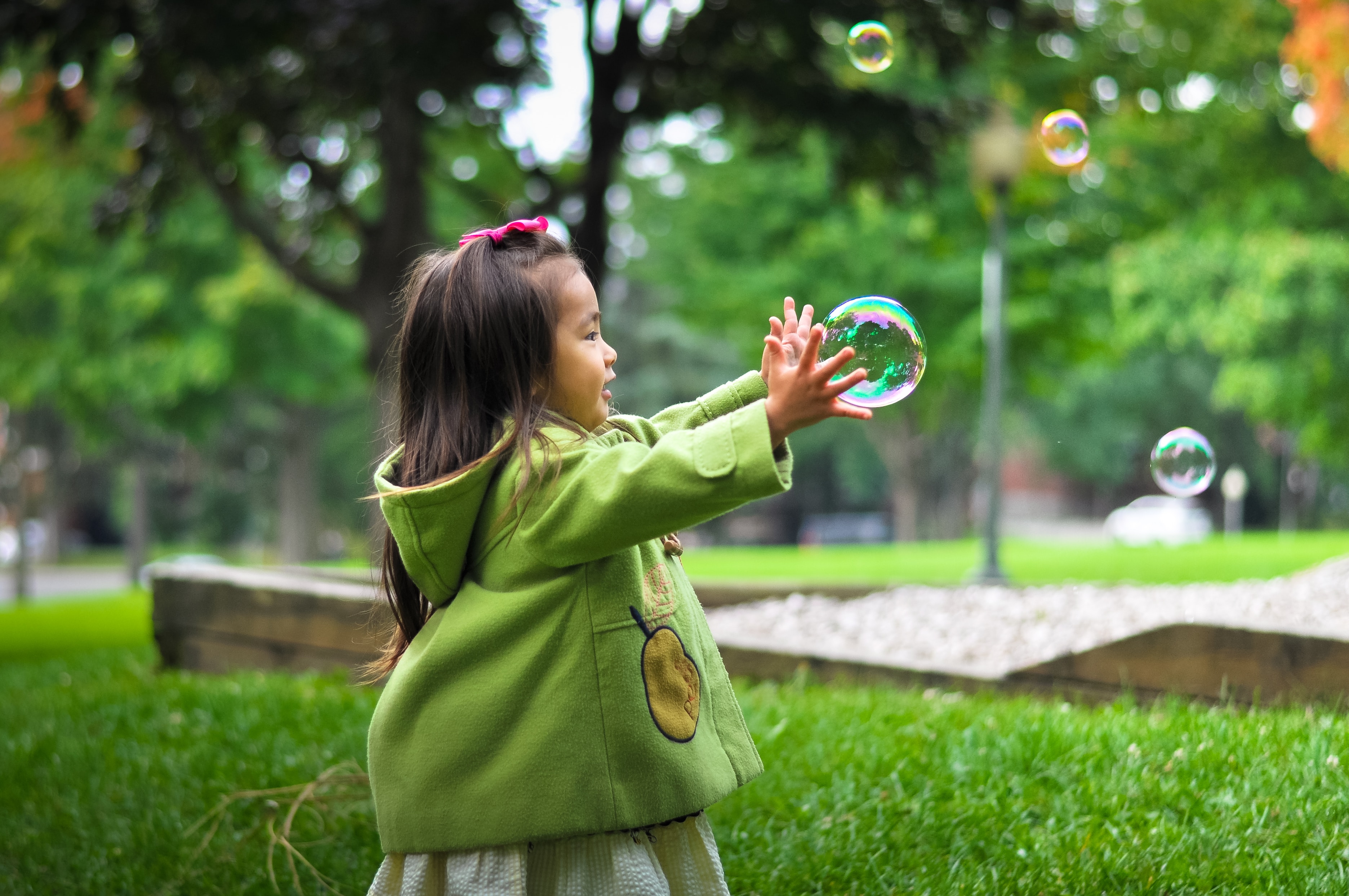It is common knowledge these days that children are fantastic language learners. We also know that being able to speak another language has a lot of cognitive benefits. But young children are also unique language learners who require a different approach than older children or adults. In our opinion, this uniqueness, while it has its own challenges, is what makes teaching language to young children so rewarding.

Challenges and opportunities
Perhaps the biggest difference between young language learners and their older counterparts is that young children often don’t know how to read or write yet. This means that we cannot rely on text or workbooks – unless our aim is to teach literacy in the foreign language, which is another topic altogether.
Not being able to use books – in the traditional sense, anyway – may seem challenging at first, but it can turn out to be a wonderful opportunity because it forces us to connect the new language to our experiences and find our teaching material in our surroundings. When we cannot focus on text, the emphasis is on listening and speaking – the skills that young children are naturally inclined to use.
Another difference between young children and older children or adults is concentration. Young children have a short attention span, which means that in order to maintain their concentration, our learning activities need to be shorter and more active and engaging (of course, active and engaging activities are not lost on older children or adults, either).
Play is a great way to achieve this. Young children love to play and it is their primary way of learning, so it makes sense to teach a language through play as well. Many games that children tend to play anyway lend themselves to language teaching quite well; for example, you could practice numbers while playing hopscotch, colors while doing some coloring or drawing, and food items and conversations while playing shop.

Speak, repeat, encourage
Because we cannot rely on text, we need to make sure that the children hear the new language a lot. This means that we need to repeat the new vocabulary and grammar multiple times in different contexts. Lucky for us, young children often like repetition, as anyone who has played Peek-a-boo with a toddler knows. Don’t worry if the children don’t understand everything you say right away – as you play the same games, they will slowly grasp the meaning of the words and phrases that you use.
At the beginning of language learning, using the language is more important than correct form. Instead of correcting every grammatical mistake, it’s better to focus on encouraging children and boosting their confidence when they are able to use the new language. Of course we want children to learn correct grammar, but focusing on mistakes will only demotivate your learners, especially since there will be a lot of them in the beginning. You can provide gentle correction by saying the word or sentence correctly to the child so they hear the correct form before moving on.
The goal of early language teaching
Learning a language takes time. You are not going to teach a whole language to young children in a year or two, and that’s okay. What you can do is give them a solid basis on which they can build as they grow. Besides, learning positive attitudes towards languages and learning is at least as important as learning the language itself, especially in early childhood. When children learn early on that they are competent and capable of learning and that learning can be enjoyable, they will be much more willing to try new things and to continue learning as they get older. This will in turn have a lasting effect on them as learners.
Moomin Language School is a play-based early language learning program for learning organizations. Would you like to try it out for yourself? Apply for a free trial month here:



